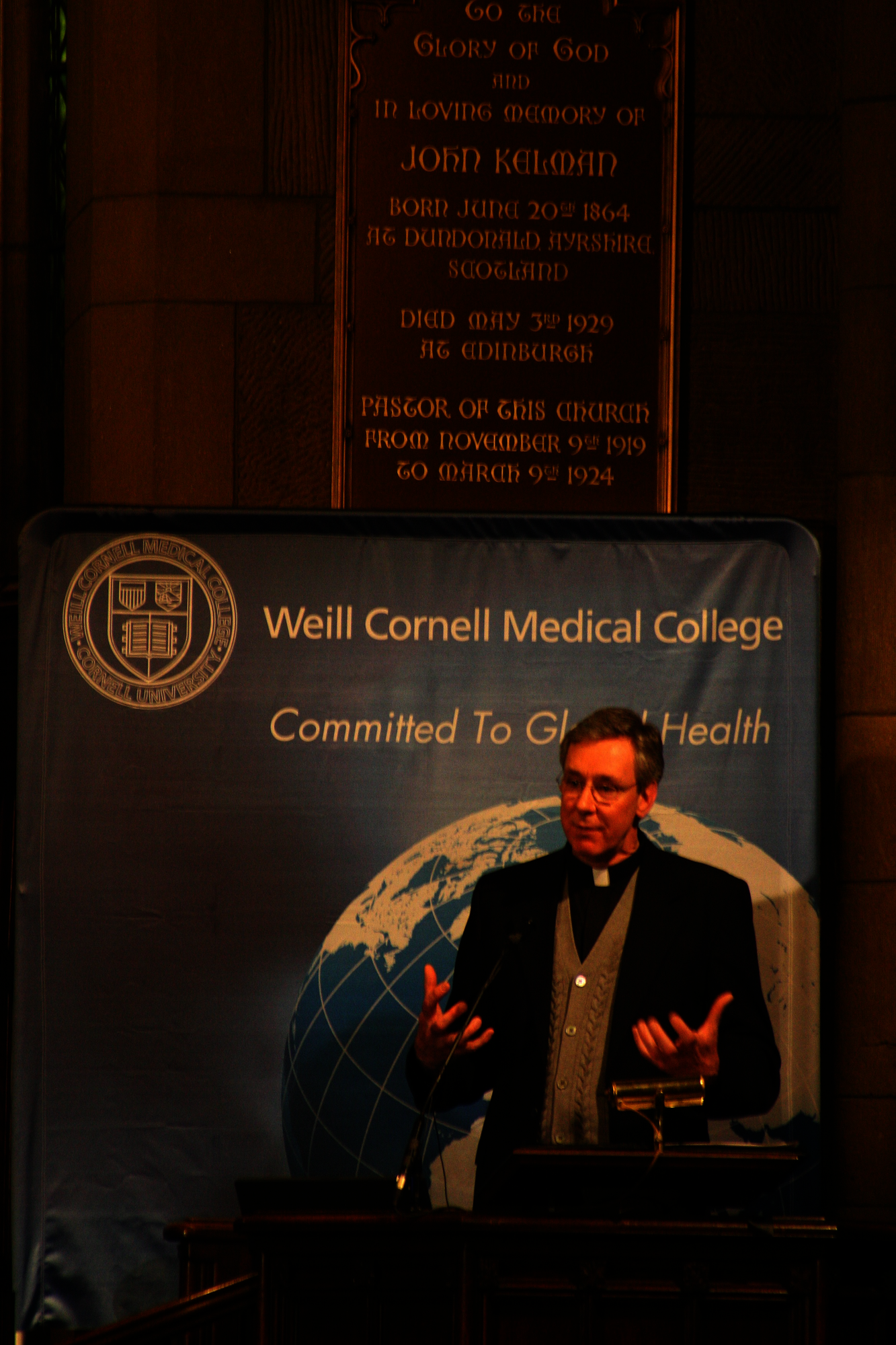The Fifth Avenue Presbyterian Church in New York City is a little over 7,000 miles away from Mwanza, Tanzania. Port-au-Prince, Haiti, is a lot closer — only 1,500 or so miles away.

Dr. Peter Le Jacq, Dr. Joseph Fins and Dr. Antonio M. Gotto Jr. at the global health seminar "Health Care & Human Rights: A World in Need," at the Fifth Avenue Presbyterian Church, Feb. 2.
Somewhere in all that distance, the poverty and disease that afflict those distant nations get lost. But in the main chapel of the 200-year-old Presbyterian Church, the oppressive conditions in these far-flung countries, and more importantly, what can be done to overcome them, were all anybody could talk about.
On Feb. 2, Weill Cornell Medical College held an interactive seminar examining medical ethics in a global health community. "Health Care & Human Rights: A World in Need" raised important issues surrounding the ethics of medical practice and research in developing nations, and how the medical community can prevent the distance of those nations from becoming an immovable barrier.
"Medicine is indeed a basic human trust," said Dr. Antonio M. Gotto Jr., dean of Weill Cornell. "And while things are getting better, they're not getting better fast enough and they're not getting better for everyone."
Dr. Gotto's presentation, entitled "Global Health: Framing the Ethical Issues," explored the ethical bases for global health action. Dr. Gotto stressed that the preservation of basic human dignity is the mission of a physician.
Dr. Gotto moderated the seminar with Dr. Joseph Fins, chief of the Division of Medical Ethics at Weill Cornell.
"We have to transform idealism into practical, good works," Dr. Fins said.

Father Peter Le Jacq
Doctors from all over the world came to lecture and answer questions at the seminar. The roster of speakers included: Dr. Holly Atkinson, the medical editor-in-chief of Everydayhealth.com and adjunct professor of public health at Weill Cornell; Dr. Estomih Mtui, an associate professor of clinical anatomy in neurology and neuroscience at Weill Cornell; Dr. Daniel Fitzgerald, an assistant professor of medicine who lived and worked in Haiti for seven years; Dr. Pablo Rodriguez del Pozo, an associate professor of public health who is currently teaching at Weill Cornell Medical College in Qatar; Dr. Carol Storey-Johnson, the senior associate dean of education at Weill Cornell and associate professor of clinical medicine; and Dr. Oliver Fein, a professor of public health.
In perhaps the most moving presentation of the day, Father Peter Le Jacq, a Maryknoll priest and physician who has worked extensively in Africa, shared a story from his time in Tanzania during the late 1980s. At the time, 30 percent of pregnant women in Mwanza, Tanzania, were HIV-positive. With no gloves, Fr. Le Jacq was once left to deliver a baby in the middle of the street. After a successful delivery, Fr. Le Jacq carried the baby — umbilical cord and placenta still intact — to the hospital. He then tried to wash his hands only to be told that the water wasn't working. Eventually he tracked down a bottle of IV fluid and began to rinse the blood from his hands and arms.
"As I washed my hands, I looked up at a calendar and noted the date, because in six months I would be able to get a reliable HIV test."
Fr. Le Jacq later tested negative, but noted, "Even if I was positive it would have been worth it."
Photography by Richard Lobell.

